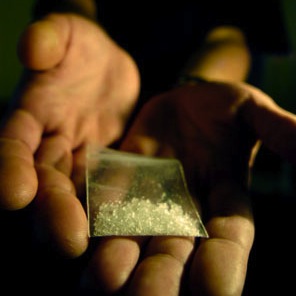The birth of a baby rarely comes as a surprise. Women often have a full 40 weeks to prepare for the arrival of the little creature that will change their lives, and many of the amendments their bodies go through during this time are significant and difficult to ignore. As a result, women may spend their pregnancies preparing for their babies, gathering clothing, preparing a nursery, choosing a baby name and finding a good pediatrician, all in the hopes of being as prepared as possible when the baby chooses to be born.
Unfortunately, some changes that come about with the birth of a baby are very hard to prepare for. Women who are hit with mental health difficulties, such as postpartum depression, may find this out on a firsthand basis. When their babies are born, they may find themselves caught off guard, and they make terrible decisions as a result. They may even slip into substance abuse.
More Than the Blues
Many women feel somewhat sad and blue when their babies are born. They may even feel a swing from happiness to sadness on a repeat basis, and these feelings can be difficult to deal with as well. The dip in hormones that occurs when pregnancy is complete is blamed for these feelings of transient sadness, and these sensations often resolve within a few days of the birth. There are some women, however, who experience symptoms that go above and beyond the simple baby blues
Women who experience deep depression, also known as postpartum depression, are somewhat rare, with one study in the Journal of Reproductive Medicine finding that only about 3.7 percent of new mothers had the condition. Some women develop symptoms mere days after giving birth, but some women develop symptoms months later. Anytime a women experiences significant depression in the months following the birth of a new baby, a diagnosis of postpartum depression is considered appropriate. The symptoms a woman can feel can vary dramatically, depending on the woman’s medical history and her history of prior mental illnesses, but common symptoms include:
- Frequent crying
- Restlessness or anxiousness
- Loss of appetite or energy
- Changes in sleep patterns
- Feelings of worthlessness or hopelessness
- Disinterest in the baby
- Suicidal thoughts
The American Academy of Family Physicians (AFP) says that some women feel much improved within just a few weeks, but some women have symptoms that persist for months. Those who have had depression issues in the past may be at particular risk for a long period of recovery, the AFP reports.
Risk Factors
Anyone could be at risk for developing postpartum depression. All women experience a dip in hormones after birth, and all women must go through major adjustments when their babies are born. Little creatures can be incredibly demanding, and new parents are often required to be on deck and ready to help 24 hours per day with no end in sight. A lack of sleep, poor nutrition and an endless set of demands could be the perfect recipe for anyone to develop a mental health issue. There are some people, however, who might have a higher-than-average risk of developing postpartum depression. According to the Mayo Clinic, higher risk can appear in women who:

- Have a history of depression
- Experienced pregnancy complications, illness, job loss or another source of stress in the year prior to the pregnancy
- Have relationship struggles with their parenting partner
- Cannot rely on others for help
- Struggle with finances
- Did not plan for the pregnancy or did not want to have the baby
Women with these risk factors were likely struggling with their own issues in the months before they got pregnant, and they may have had a precarious hold on mental health before the baby was conceived. The dip in hormones and the changing life circumstances that take place after the birth are just enough to place these women in distress.
There are other women who have extreme difficulty before their babies are born, and they might be at even higher risk of postpartum depression. A study in the journal CMAJ paints a clear picture of the risks these women face. In this study, researchers looked at women who were living with a physically or mentally abusive partner. The researchers found that incidents of abuse rose dramatically in the three months that followed the birth, with 90 percent of the participants reporting an event during this time period. As new babies place strain on already dysfunctional families, terrible things can take place and this could lead to mental illnesses including depression./p>
The Link to Drug Use
 Statistics about the number of women who turn to drugs as they deal with postpartum depression are hard to come by. It is known, for example, that about 5 percent of women use illicit drugs while they are pregnant. That’s a statistic that came directly from the National Survey on Drug Use and Health in 2007. It’s reasonable to think that some women who had addictions during pregnancy would have the same issue after the pregnancy, but it’s hard to know how many women might turn to drugs for the very first time as they deal with a new baby.
Statistics about the number of women who turn to drugs as they deal with postpartum depression are hard to come by. It is known, for example, that about 5 percent of women use illicit drugs while they are pregnant. That’s a statistic that came directly from the National Survey on Drug Use and Health in 2007. It’s reasonable to think that some women who had addictions during pregnancy would have the same issue after the pregnancy, but it’s hard to know how many women might turn to drugs for the very first time as they deal with a new baby.
It’s not difficult to understand, however, why women might find addictive drugs alluring as they attempt to deal with postpartum depression. Drugs of abuse can cause a spike in pleasure chemicals in the brain, allowing a low mood to lift and feelings of negativity and stress to disappear.
Drugs of abuse can be used to allow women to stay awake and energized for days, which could be helpful for women who need to provide around-the-clock care for fussy babies that don’t ever need to sleep. Abusive drugs can also provide an immediate sensation of relaxation, allowing women to drop off to sleep as soon as their babies do so. Some women develop sophisticated drug abuse regimens as they attempt to deal with the lifestyle their babies demand of them, and this use can quickly spiral into abuse and addiction.
Risks to Babies
It’s well known that drug abuse and addiction can lead to catastrophic health consequences. Women who abuse drugs could develop infections at the sites they use for injection; they could damage their hearts or their vital organs due to abusive drugs. Women could damage their memories and their ability to make good decisions, and they could expose their bodies to cancer-causing chemicals. Women who abuse drugs could also do irreparable damage to their babies, at a time when these children are incredibly vulnerable.
Women who abuse drugs and who breastfeed their children can cause their children an immense amount of pain and suffering. In a report produced by the American Academy of Pediatrics, researchers found that these specific drugs can cause issues for babies who breastfeed:
- Amphetamine: irritability and difficulty with sleep
- Cocaine: irritability, vomiting, diarrhea, seizures
- Heroin: restlessness, vomiting, difficulty feeding, tremors
- Marijuana: exposure with long half-life
This study seems to suggest that women who use drugs to help them deal with difficult babies may be making the issue even worse, as babies who are exposed to drugs might become yet more irritable and difficult. The exposed baby could end up being a reinforcing agent that makes the urge to use substances even stronger.
Addictions can also be quite selfish, requiring a significant amount of time and energy to maintain. People who are addicted often find that they don’t have the time to maintain their relationships or excel at their jobs, as they need to devote most of their energy to making money for drugs, buying drugs or using drugs. Women with postpartum depression and addictions may face the inability to deal with all the demands of the addiction and the baby, and they may neglect the baby as a result. The National Center on Addiction and Substance Abuse at Columbia University reports that substance abuse is a factor in about 70 percent of reported cases of child maltreatment.
Some parents physically abuse their children while under the influence, but some simply place a smaller amount of importance on their children, when faced with the demands of an addiction.
Neglecting or abusing a baby is no small matter, as a child like this may develop deep scars that could take a lifetime to heal. A mother might do such damage in this way that her children develop substance abuse issues of their own, thereby perpetrating the cycle of addiction within the family. In the short term, however, women might also face law enforcement action due to their neglect and substance abuse issues. It’s unlikely that an arrest would make an underlying mental health issue any better.
Finding Hope
Women who have a mild case of the baby blues can benefit from some simple self-help tips, such as:
- Take 15 minutes per day to do something enjoyable.
- Ask for help from friends and family members.
- Rest when the baby rests.
- Walk or exercise each day, if your doctor says this is acceptable.
- Find time to be with adults.
Women with blossoming cases of postpartum depression might also benefit from these kinds of tips, and in time, they might also feel their symptoms of distress begin to lift and ease. However, there are some situations that aren’t always responsive to home care. Addiction might be one of those issues. Drugs of abuse can cause physical damage within the mind that can make it hard for people to control their urges and make good decisions about the future. It’s hard to overcome these issues alone, and women who are still caring for their babies may continue to face mounting stress at home that could cause such intense pressure that a return to drug use seems almost certain.
While it’s never easy for new moms to leave their babies behind, even for a few moments, some women may need to enroll in inpatient care for their addiction and depression issues, and not all treatment facilities allow mothers to bring their babies with them. These facilities might work hard to keep treatment times abbreviated, allowing a woman to transition to outpatient care as soon as possible so she can be reunited with her baby once more, but she might need to leave her baby with the family for a few days or weeks so that she can heal and be a good parent to her child. In the long run, this might be the best course of action.
At Axis, we specialize in helping people who have both addiction issues and mental health issues. Our beautiful facility provides an oasis of healing, and our counselors are adept at helping people to understand how their mental illnesses and addictions might reinforce and build upon each another. If you’d like to know more about our program, or you need help finding another program like ours, please call our operators. We’re happy to help.


